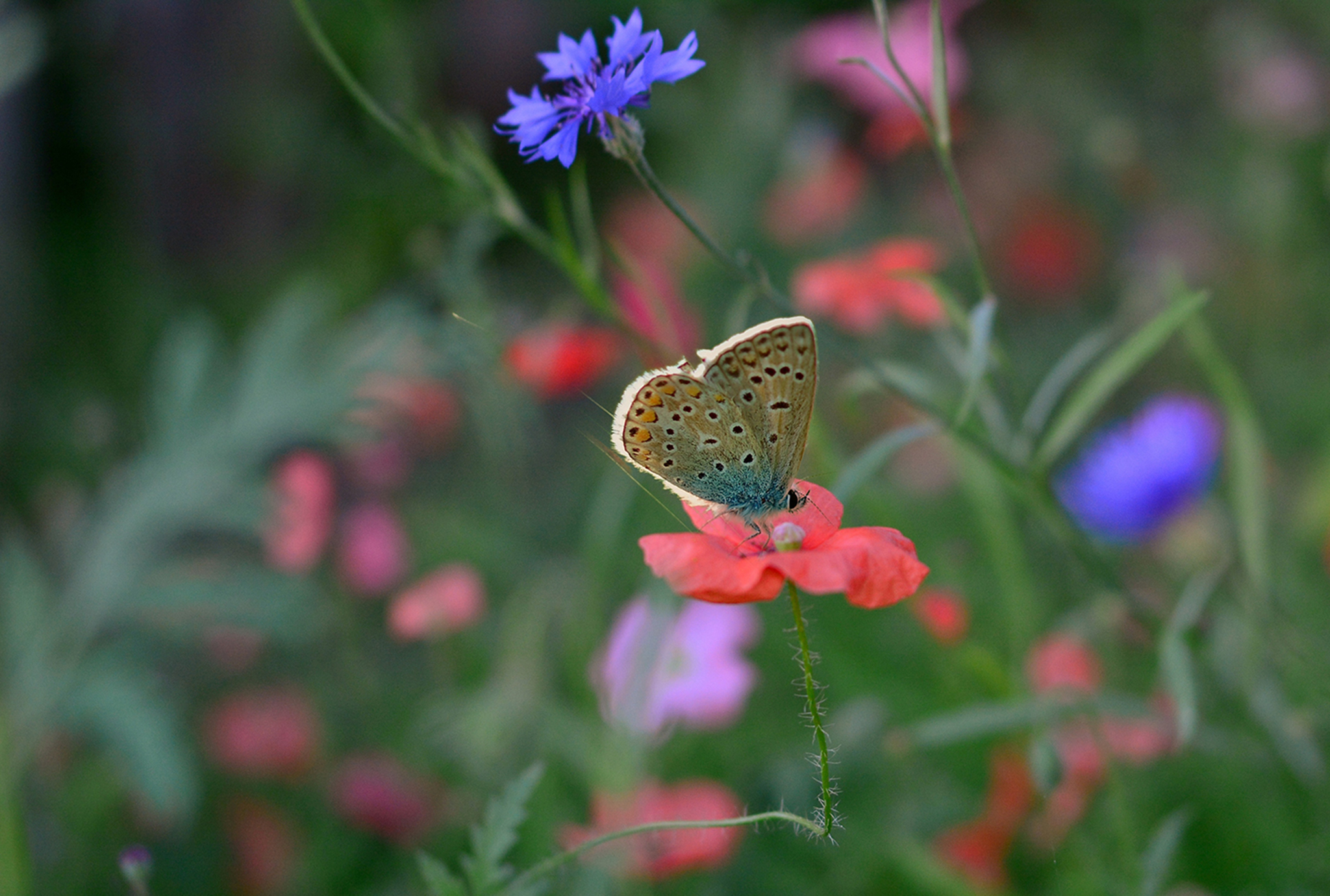The LIB at the Langer Tag der StadtNatur Hamburg
 © pixabay
© pixabay
We grab our nets, binoculars and rubber boots – on 17 June it’s the Langer Tag der StadtNatur Hamburg again. As a close partner of the event, which is initiated by the Loki Schmidt Foundation, the Museum of Nature Hamburg is of course also represented this year with exciting activities. First and foremost with the Bioblitz, which also helps the city to better understand the fauna of the Hanseatic city.
When summer is just around the corner, we look forward to the Langer Tag der StadtNatur Hamburg every year. Initiated by the Loki Schmidt Foundation, the Museum of Nature Hamburg and the LIB are close partners of the event. In addition to a guided tour, there will again be a Bioblitz in 2023, where our experts will guide you through nature and at the same time take a closer look at the biodiversity of the Hanseatic city together with participants. This year we are going to Fischbeker Heide.
Last year we went to the Niendorfer Gehege. In order to detect as many animal species as possible on the site, ground and malaise traps were set up before the Langer Tag der StadtNatur, and the catches were then analysed using DNA metabarcoding. One of these traps was permanently established and is now part of the biomonitoring in Hamburg, which is carried out by the association Neuntöter in cooperation with the LIB and the Ministry for the Environment, Climate, Energy and Agriculture (BUKEA).
The researchers and visitors were able to detect 136 species on the Langer Tag der StadtNatur itself. More than 70 percent of these were insect species, but numerous crustacean, snail and bird species could also be identified. “A special feature was the grasshopper Omocestus viridulus, which is rarely found in Hamburg. But the longhorn beetle Callidum violaceum was also a nice find,” sums up Dr habil Martin Husemann, who accompanied the Bioblitz last year.
The DNA metabarcoding of the trap material took place later and resulted in 655 molecular units, of which 351 could be clearly assigned to species. These were mainly flies and wasps, but many bees and other insects could also be detected in this way. In total, 474 species could be detected for the Niendorf enclosure using both methods; 13 species were found using both methods. This data is now also made available to BUKEA and thus also finds its way into faunistic lists and endangerment assessments.
We will continue this successful model this year and explore the Fischbeker Heide nature reserve together. We have about six guided tours on offer on different animal families such as butterflies, birds or spiders. On the website of the Langer Tag der StadtNatur you will find the complete programme overview and the possibility to register directly for the tours.
Our programme:
17 June 2023, 10:30 AM-4 PM
BIOBLITZ IN THE FISCHBEK HEATH
Grab your net, binoculars and rubber boots – we’ll go on an animal species hunt together. At the annual Bioblitz as part of the Langer Tag der StadtNatur, we will look for and count Hamburg’s insects, spiders and birds together. Together with the experts from the LIB, we will learn about the species, how they have adapted to Hamburg’s nature and where they can be found. The Bioblitz starts at 10:30 am with about six tours. Be at the meeting point in time so as not to miss the first tour, at the Segelflugplatz-Club Fischbek e.V. (Scharlbargstieg 15, 21149 Hamburg).
Guided tours:
11:45 am: Recording insect diversity
12:45 pm: Searching for spiders
01:30 pm: Insects and their habitats
02:15 pm: Butterflies and moths (ENG)
18 June 2023, 10 AM-12 PM
FIND’EM ALL – BUTTERFLIES SIGHTINGS
Learning more about butterflies
An activity for the whole family, to learn more about insects in general, focusing in the colourful-beautiful-intriguing butterflies. Let’s talk about their life histories, food preferences, ecological roles, and natural curiosities, while we look for species found in the Loki-Schmidt-Garten (Botanischer Garten Hamburg). In English and Portuguese.


